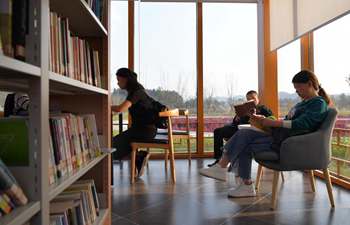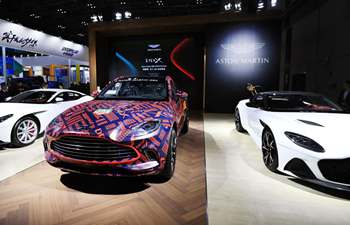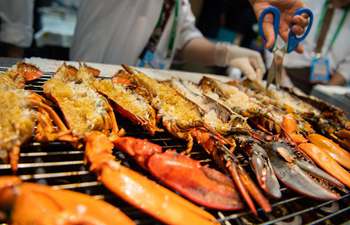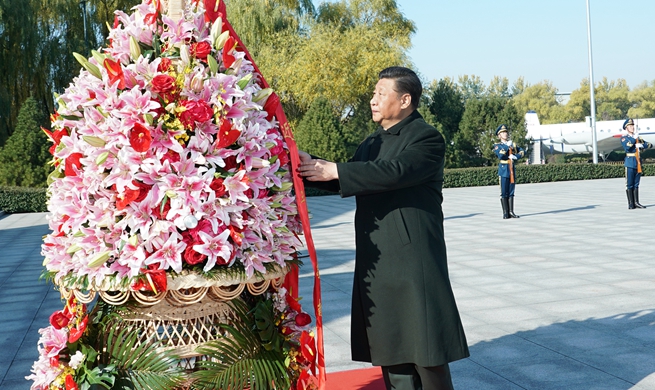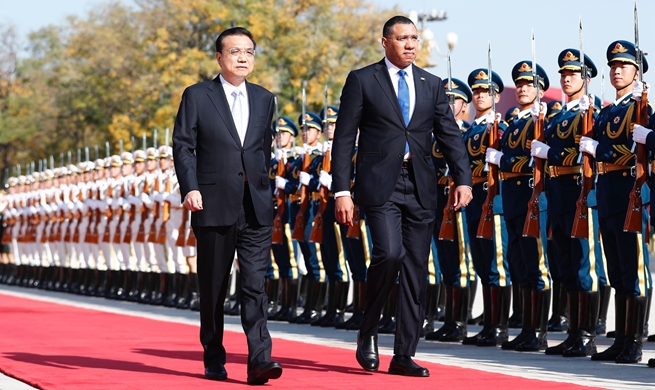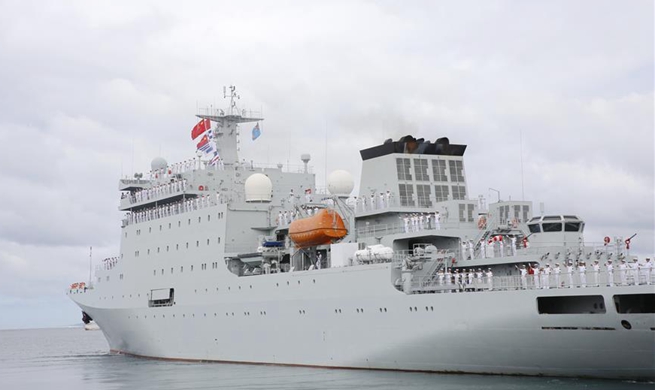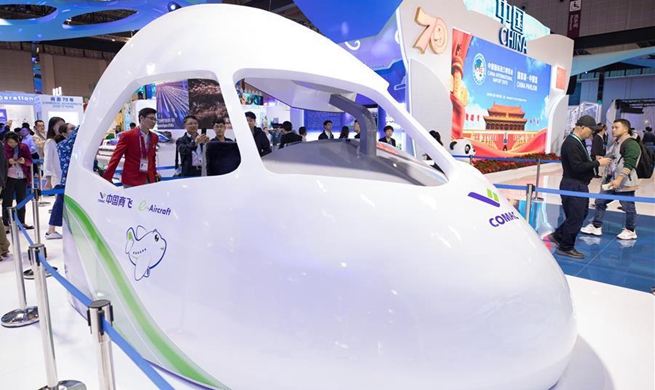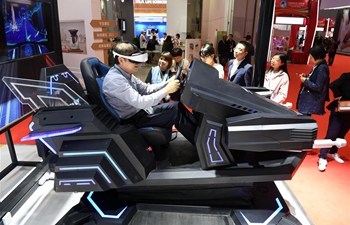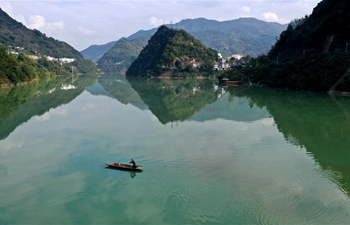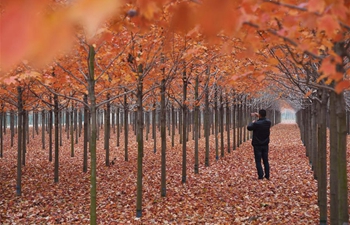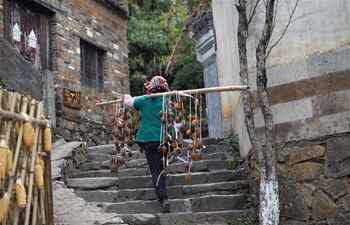SHANGHAI, Nov. 9 (Xinhua) -- China's ongoing import expo has turned out to be a grand stage for small countries to showcase their appeal and explore business opportunities in the world's second-largest economy.
Filling a corner shelf, products from Timor Leste attracted a continuous stream of visitors at the second China International Import Expo (CIIE) in Shanghai.
"We are confident that our products will enjoy success in China," said Bei Lei, who is in charge of the Timor Leste national booth.
Bei's optimism does not come from nowhere. Civet coffee from the Asian island country is craved by coffee drinkers all over the world. Purely organic and tasty, Timor Leste's civet coffee is of high quality with an annual output of just several hundred kilos.
"Although China's coffee market is highly competitive, there's still room for us as we mainly target the premium segment," she said.
Located between Indonesia and Australia, Timor Leste is a small country with a population of around 1.3 million.
Regarding the CIIE as a golden platform to reach Chinese dealers and consumers, Bei said she has grown more optimistic about future business prospects as many buyers have shown great interest in the island country's products: not only coffee but also honey, handicrafts and wine.
"The expo is really a great platform for small nations that have tight budgets for product promotion," Bei added.
Timor Leste is not the only small country that has benefited from the CIIE.
Nuno Furtado, representative of Cape Verde at the Forum for Economic and Trade Cooperation between China and Portuguese-speaking Countries (Forum of Macao), also expressed gratitude to the platform.
"The first expo was very successful. That's why we are here again this year at the second edition," he said.
Invited and supported by the Chinese government, Cape Verde has a bigger pavilion this year with more products on display including drinks, coffee and fishery products.
"China is a huge market with big opportunities for everyone," he said. "More importantly, China is willing to open its market and let other countries share its prosperity."
Being a small nation, "our production capacity cannot reach all Chinese consumers, but we can tap into the vast market by working with a specific province or enterprise," he said.
Not far away from the Cape Verde pavilion, buyers were enjoying thangka paintings at the well-designed Nepal pavilion.
"Thanks to the Chinese government's support, we have the national pavilion free of charge," said Jayandra Bahadur Bogati, section officer of the Trade and Export Promotion Center of Nepal.
Although the pavilion is the same size as last year, Nepal has more commodities on display, such as cashmere products, shoes and bags.
The Nepal official said the country expects to increase exports to China, woo more Chinese tourists and attract more investment through the CIIE.
Bilateral trade between China and Nepal jumped 11.7 percent year on year to 1.1 billion U.S. dollars last year, with China's imports from the neighboring nation soaring 23.2 percent.
China has long been committed to helping underdeveloped countries increase foreign trade. By March 2018, China had accorded zero tariff treatment on 97 percent of all tariff lines to 36 least-developed countries that have diplomatic relations with China and completed exchange of notes.
Over 170 firms from 40 least-developed countries including Bangladesh, Madagascar, Rwanda and Zambia are attending the expo.




